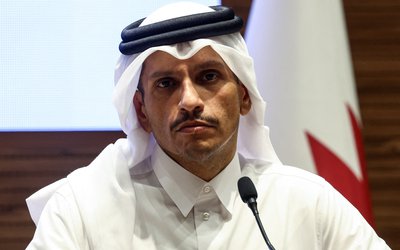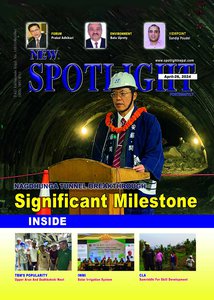In the first week of March, civil society representatives from around the world had gathered in the United Nations headquarters in New York to press for stronger action to transform the plights of poor nations of the world, collectively known as the Least Developed Countries (LDCs).
“As the developed countries are busy to keep their own houses in order, the crisis, in fact, has shifted to the LDCs,” said Mohiuddin Ahmed, a civil society activist from Bangladesh. “It’s insulting to see that poverty still remains a catch-word. If the military budget of major economies is cut by 10 percent annually, there would be no poverty in the world,” he added.
Said Ms Nura from Niger, “Most of the Sub-Saharan countries are suffering from drought, famine and desertification. We want that food sovereignty be given prominent status in any future negotiations.”
In order to review the progress made by the LDCs over the last decade and formulate a Programme of Action (PoA) for the new decade, the United Nations is going to organise the IVth LDC Summit in Istanbul from 9 to 13th May, this year. The New York meeting provided an informal forum for civil society activists and government representatives to share their concerns and draw the attention of the international community towards common issues.
‘Structural Constraints’
Ambassador Gyan Chandra Acharya, Nepal’s permanent representative to the United Nations, who was also chairing the bureau of LDCs, said that LDCs were suffering from structural constraints created by low level of economic development. “The Green Revolution has by-passed the LDCs. Now, the international community must come forward to support them to increase their food production and develop rural infrastructure.”
In 1971, the United Nations identified 24 countries as the LDCs that had per capita income of less than 750 US dollars. The idea was to help these countries graduate from the LDC status. But four decades later, the number of LDCs has just doubled. Out of 48 LDCs, 33 remain in Africa, one (Haiti) in America and the rest in Asia and the Pacific.
“All 33 LDCs in Africa are living in crisis,” said Ms Odale Faye, a civil society activist from Senegal. “In order to change their plight, we need new rules of the game based on new social contract,” she added.
From climate change to debt cancellation, from technology transfer to improving the capabilities of human resources in the LDCs, civil society activists highlighted the agenda that were most important for them. “The Istanbul Programme of Action must commit to halve the number of LDCs over the next decade,” demanded Dr Arjun Karki, international coordinator of the LDC Watch, an advocacy group comprising civil societies from around the world. “The international community has failed the world’s most vulnerable countries. The time has come now for course correction,” he added.
The UN officials insist that the LDCs – with the combined population of over 800 million-- pose next big challenge for globalisation. “The last two decades have witnessed a surge in the emerging-market countries such as Brazil, China, India and Indonesia. The millennium development goals' target of reducing extreme poverty in the world has already been met, ahead of schedule. Because of this surge, the final group of countries to remain mired in endemic poverty now have a fighting chance of moving up – perhaps their best chance in recent history,” said Cheick Sidi Diarra, the UN under Secretary General and High Representative for the Least Developed Countries, Landlocked Developing Countries and Small Island Developing States. “Seeing the LDCs emerge from development stagnation is a humanitarian challenge that is also in the interests of all of us. It is a forward movement that can also be an effective rearguard action, potentially sealing off global threats brought on by regional instability, extremist violence, transnational crime and infectious diseases,” he added.
While the civil society activists are demanding that the developed countries and multilateral agencies write off all debt to the LDCs and help them adapt to the effects of climate change, among others, developed countries are citing their own adverse economic conditions. They are also calling upon the LDC governments to improve their governance and promote accountability.
While agreeing to such concerns, civil society activists said that everything must be done so as not to lose the latest opportunity. “We want a new global development paradigm that is people-oriented, rather than profit-oriented. We want a world without LDCs,” said Amadou Thal, a civil society activist from Gambia.
But, translating these lofty goals into reality through a concerted action would be no less challenging.
- NIS 2024: Few Deals, Many Rhetoric
- May 12, 2024
- LATE SAMBHU PRASAD GYAWALI: Legendry Lawyer
- May 03, 2024
- TBM’S POPULARITY: Upper Arun And Dudhkohshi Next
- May 02, 2024
- QATAR AMIR’S STATE VISIT: Five Agreements
- Apr 28, 2024
- BIPIN JOSHI: Call For Release
- Apr 21, 2024
















